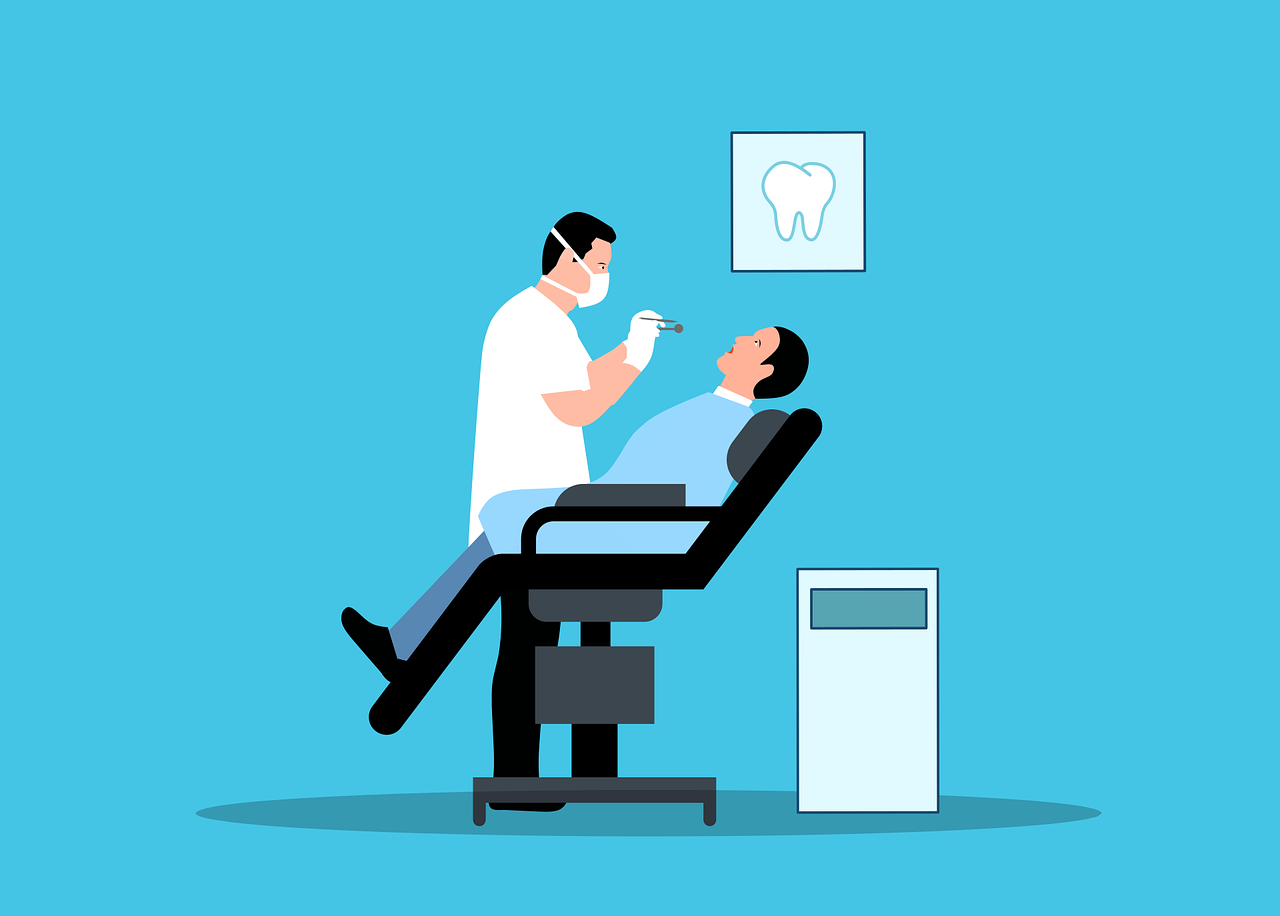Health
Effective Treatments and Preventative Measures from Willow Grove Dental

As a dental specialist at Willow Grove Dental, I’ve seen firsthand the importance of effective treatments and preventative care when it comes to maintaining optimal oral health. Countless studies have shown the profound impact that poor dental hygiene can have on an individual’s overall well-being, from increased risk of heart disease to potential complications for expectant mothers.
Unfortunately, many patients only seek dental care when they are already experiencing significant problems, such as severe tooth pain or advanced gum disease. By that point, the issues have often progressed to the point where more extensive and costly treatment is required. That’s why at Willow Grove Dental, we place a strong emphasis on preventative dentistry, empowering our patients to take a proactive approach to their oral health.
The Importance of Preventative Dentistry:
According to the Centers for Disease Control and Prevention (CDC), nearly half of all adults in the United States have some form of periodontal (gum) disease. This chronic condition, if left untreated, can lead to tooth loss, jaw bone deterioration, and has even been linked to an increased risk of cardiovascular disease and stroke.
The good news is that gum disease, as well as many other common oral health problems, are highly preventable with proper dental care and hygiene. Regular check-ups, professional cleanings, and consistent at-home brushing and flossing can go a long way in keeping your mouth healthy and happy.
At Smile Dental Center, we recommend that our patients schedule biannual dental exams and cleanings. During these visits, our team of skilled hygienists and dentists thoroughly inspect the teeth and gums, identify any potential issues, and provide thorough cleanings to remove plaque and tartar buildup.
By catching problems early, we can often address them with minimally invasive treatments, saving our patients time, money, and discomfort down the line. This proactive approach not only benefits our patients’ oral health but can also have a positive impact on their overall well-being.
Effective Treatments for Dental Concerns:
Of course, even the most diligent patients can still develop dental issues that require treatment. When this happens, Willow Grove Dental is equipped with the latest technologies and techniques to provide effective, comfortable care.
One common concern we address is tooth sensitivity. Many of our patients experience discomfort when consuming hot, cold, or acidic foods and beverages. This sensitivity can be caused by a variety of factors, including enamel erosion, receding gums, or even tooth grinding.
To address tooth sensitivity, our dentists may recommend treatments such as desensitizing toothpaste, fluoride varnish applications, or even bonding procedures to seal exposed dentin. By addressing the root cause of the sensitivity, we can help our patients regain their comfort and confidence while eating and drinking.
Another area of focus for our practice is restorative dentistry. When a tooth becomes severely damaged or decayed, it may require a filling, crown, or even a root canal procedure to preserve the tooth and restore its function. Our skilled dentists utilize the latest advancements in dental materials and techniques to ensure that these restorations are both durable and aesthetically pleasing.
For patients who have experienced tooth loss, we also offer a range of replacement options, including dental bridges, dentures, and dental implants. These restorative solutions not only improve the appearance of the smile but also help to maintain the integrity of the jawbone and overall oral health.
Investing in Oral Health Education:
At Willow Grove Dental, we believe that empowering our patients with knowledge is just as important as providing exceptional clinical care. That’s why we place a strong emphasis on patient education, helping our patients understand the importance of good oral hygiene and the steps they can take to maintain a healthy, beautiful smile.
During each appointment, our team takes the time to explain any issues or concerns, discuss treatment options, and provide personalized recommendations for at-home care. We also offer educational resources, such as informative brochures and instructional videos, to help our patients stay informed and engaged in their oral health journey.
By fostering this collaborative, educational approach, we’ve found that our patients are more likely to follow through with recommended treatments and preventative measures. This, in turn, leads to better long-term outcomes and a reduced need for more extensive, costly interventions down the line.
Commitment to Patient-Centric Care:
At the core of Willow Grove Dental’s approach is a deep commitment to patient-centric care. We understand that visiting the dentist can be a source of anxiety and discomfort for many people, which is why we go to great lengths to create a warm, welcoming environment and ensure that our patients feel heard, respected, and cared for.
From the moment our patients step through our doors, they are greeted by our friendly front desk staff and ushered into comfortable treatment rooms. Our dentists and hygienists take the time to get to know each patient, listening to their concerns and tailoring their care accordingly. We also offer a range of amenities, such as noise-canceling headphones and massage chairs, to help our patients feel relaxed and at ease.
By prioritizing the patient experience, we’ve built a loyal following of individuals who trust Willow Grove Dental to meet their oral healthcare needs. Many of our patients have been with us for years, and we take great pride in helping them maintain healthy, beautiful smiles for a lifetime.
Maintaining optimal oral health is a lifelong journey, and at Willow Grove Dental, we are committed to providing our patients with the tools, knowledge, and personalized care they need to succeed. Through a combination of effective treatments, preventative measures, and a patient-centric approach, we strive to help our patients achieve and maintain the healthy, confident smiles they deserve.
If you or a loved one are in need of exceptional dental care, I encourage you to contact Willow Grove Dental today. Our team of skilled professionals is dedicated to going above and beyond to ensure that your oral health needs are met with the utmost care and attention. Together, we can embark on a journey towards a lifetime of optimal oral wellness.
Health
6 Ways to Close Tooth Gaps Explained by a Cosmetic Dentist in London

Tooth gaps, medically termed diastema, are common among adults in the UK, often resulting from genetic factors, habits, or developmental issues. These spaces between teeth can influence both appearance and oral function, prompting many to explore corrective options. In urban areas like London, access to advanced dental services facilitates effective treatments tailored to individual needs. Consulting a cosmetic dentist in London ensures that any approach aligns with personal health goals and aesthetic preferences. This article examines six established methods for closing such gaps, drawing on current practices in dentistry to provide clear guidance for those considering intervention.
Dr. Sahil Patel of MaryleboneSmileClinic provides the following professional advice on addressing tooth gaps: “Selecting the appropriate treatment for diastema depends on the gap’s size, location, and underlying cause. Non-invasive options like bonding can yield quick results, while orthodontics offer long-term alignment. Patients should undergo a thorough examination to avoid complications and achieve natural outcomes. For detailed consultations and case examples, visit this site.”
The Causes of Tooth Gaps
Before exploring treatment options, it is essential to comprehend the origins of diastema. Genetic predisposition plays a significant role, as some individuals inherit smaller teeth relative to their jaw size, leading to natural spacing. In children, gaps often close as permanent teeth erupt, but persistence into adulthood may stem from habits such as thumb-sucking or tongue thrusting, which exert pressure and widen spaces over time. Periodontal disease can exacerbate gaps by causing gum recession and bone loss, allowing teeth to shift. Additionally, an oversized labial frenum—the tissue connecting the upper lip to the gums—can prevent front teeth from meeting, creating a midline diastema. In rare cases, missing teeth due to injury or extraction result in adjacent teeth drifting apart. Identifying the cause through diagnostic tools like X-rays or digital scans is crucial, as it informs the most effective closure method. In the UK, dental professionals emphasise preventive care to mitigate these issues early, reducing the need for extensive corrections later.
When to Seek Treatment for Tooth Gaps
Deciding to close tooth gaps involves weighing aesthetic concerns against functional implications. While small spaces may pose no health risks, larger ones can trap food particles, increasing the likelihood of plaque buildup, cavities, and gum inflammation. Speech difficulties, such as lisping, occasionally arise from prominent front gaps, affecting confidence in professional or social settings. In London, where diverse populations seek dental care, practitioners note a rise in requests for corrections among adults pursuing career advancements or personal milestones. Treatment is advisable if gaps contribute to bite misalignment, known as malocclusion, which may lead to uneven wear on teeth or jaw strain. However, not all diastema requires intervention; some cultural perspectives view them positively. A consultation with a qualified dentist helps determine necessity, considering factors like age, oral hygiene, and overall dental structure. Early assessment prevents minor issues from progressing, ensuring long-term oral health.
Method 1: Traditional Braces
Traditional braces represent a time-tested approach to closing tooth gaps, particularly effective for moderate to severe diastema. This method involves affixing metal brackets to the teeth, connected by wires that apply gradual pressure to shift them into alignment. In the UK, orthodontists customise braces based on detailed impressions or 3D scans, ensuring precise movement. The process typically spans 12 to 24 months, with periodic adjustments to tighten wires and monitor progress. Patients receive guidance on maintaining hygiene, using tools like interdental brushes to clean around brackets and prevent decay. Advantages include comprehensive correction of not only gaps but also crowding or rotation issues, leading to a balanced bite. However, initial discomfort from wire tension and aesthetic concerns about visibility prompt some to opt for alternatives. Costs in London range from £2,000 to £5,000, depending on complexity, often covered partially by private insurance. Post-treatment, retainers are essential to maintain results, as teeth can shift without them. This option suits younger adults or those with multiple alignment needs, offering durable outcomes when followed by diligent aftercare.
Method 2: Clear Aligners
Clear aligners provide a discreet alternative to traditional braces for closing tooth gaps, appealing to those prioritising aesthetics during treatment. Systems like Invisalign utilise a series of transparent, removable trays fabricated from BPA-free plastic, each designed to incrementally adjust tooth position. Treatment begins with a digital scan to create a custom plan, predicting movements over 6 to 18 months. Patients wear aligners for 20 to 22 hours daily, removing them for meals and cleaning, which enhances comfort compared to fixed appliances. In London clinics, follow-up appointments every four to six weeks ensure alignment progresses as planned, with refinements available if needed. Benefits encompass minimal impact on daily life, reduced irritation to gums and cheeks, and easier oral hygiene routines. Limitations include suitability primarily for mild to moderate gaps, as severe cases may require additional interventions. Average expenses fall between £1,500 and £4,000, influenced by the number of trays required. Compliance is key, as inconsistent wear prolongs duration. Upon completion, night-time retainers preserve the closed gaps, preventing relapse. This method aligns well with busy lifestyles, making it a popular choice among professionals seeking subtle corrections.
Method 3: Composite Bonding
Composite bonding offers a minimally invasive solution for closing small to medium tooth gaps, involving the application of tooth-coloured resin to reshape and fill spaces. The procedure commences with surface preparation, etching the enamel to promote adhesion, followed by layering the composite material and sculpting it to match natural contours. A curing light hardens the resin, with final polishing for a seamless finish. Performed in a single visit lasting one to two hours per tooth, it requires no anaesthesia unless decay is present. In the context of dental care in London, this technique is favoured for its affordability and immediacy, with costs typically £150 to £400 per tooth. Strengths lie in preservation of natural tooth structure and reversibility, allowing future modifications. Drawbacks include potential staining over time from coffee or tobacco, necessitating periodic touch-ups every five to seven years. Maintenance involves regular brushing, flossing, and avoiding hard foods to prevent chipping. Ideal for front teeth gaps where aesthetics dominate, bonding provides natural-looking results without extensive preparation. Patients appreciate the quick transformation, boosting self-assurance in social interactions.
Method 4: Porcelain Veneers
Porcelain veneers serve as a durable cosmetic option for closing tooth gaps, especially when combined with desires for whiter or more uniform smiles. These thin shells, crafted from high-quality ceramic, bond to the front tooth surface after minimal enamel removal—about 0.5mm—to accommodate thickness. The process spans two to three appointments: initial consultation for impressions, temporary veneers if needed, and final placement with adhesive cement. Laboratories in the UK produce veneers to precise specifications, ensuring colour and shape harmony with adjacent teeth. In London, where demand for aesthetic enhancements is high, veneers cost £500 to £1,000 each, reflecting material quality and expertise. Advantages encompass resistance to stains, longevity up to 15 years, and ability to address multiple issues like chips or discolouration alongside gaps. Considerations include irreversibility due to enamel reduction and risk of fracture if subjected to excessive force. Aftercare emphasises gentle biting, use of mouthguards for bruxism, and biannual check-ups. This treatment excels for visible gaps in the smile zone, delivering transformative results that enhance facial symmetry and confidence.
Method 5: Dental Crowns
Dental crowns provide a robust method for closing larger tooth gaps, particularly when teeth are weakened by decay, fractures, or previous fillings. A crown encases the entire visible tooth portion, restoring form and function while bridging spaces. Preparation involves reshaping the tooth to create space for the crown, followed by impressions for custom fabrication in materials like porcelain-fused-to-metal or all-ceramic. Temporary crowns protect the site during the two-week lab period, with permanent fitting using strong cement. In UK practices, including those in London, crowns range from £400 to £800 per unit, varying by material and location. Benefits include strengthened teeth, improved chewing efficiency, and long-term stability lasting 10 to 15 years. Potential downsides encompass sensitivity post-preparation and the need for root canal if nerve involvement occurs. Hygiene routines mirror natural teeth, with flossing under the crown’s base to prevent gum issues. Suited for back teeth gaps or front ones requiring structural support, crowns offer reliable closure in complex cases. Regular monitoring ensures longevity, safeguarding overall dental integrity.
Method 6: Surgical Interventions
Surgical interventions address tooth gaps rooted in anatomical abnormalities, such as an enlarged labial frenum or gum irregularities. A frenectomy, for instance, severs the excess tissue tethering the lip to gums, allowing teeth to converge naturally, often paired with orthodontics for optimal results. Performed under local anaesthesia, the outpatient procedure uses lasers or scalpels, promoting quick healing within days. Gum contouring reshapes uneven gingival lines that accentuate gaps, employing laser technology for precision and minimal bleeding. In London dental settings, these surgeries cost £200 to £600, depending on extent. Merits include targeted correction of causes rather than symptoms, with low recurrence rates when followed by supportive care. Risks involve temporary swelling or infection, mitigated by antibiotics and ice application. Post-operative instructions stress soft diets and saline rinses. This approach benefits persistent midline diastema unresponsive to non-surgical methods, yielding refined aesthetics. Combining surgery with other treatments maximises efficacy, underscoring the importance of multidisciplinary dental planning.
Choosing the Right Method
Selecting among these six ways to close tooth gaps hinges on factors like gap severity, budget, and lifestyle. Mild spaces may resolve with bonding or aligners, while extensive ones necessitate crowns or surgery. In London, where specialised clinics abound, a cosmetic dentist can conduct assessments using advanced imaging to recommend tailored plans. Weighing pros and cons—such as treatment duration versus permanence—guides informed decisions. Financial aspects vary, with NHS coverage limited to functional needs, prompting many to explore private options or payment plans. Ultimately, prioritising oral health alongside aesthetics ensures sustainable results.
Maintaining Results After Treatment
Post-treatment maintenance is vital to preserve closed tooth gaps. Regardless of method, adhering to twice-daily brushing with fluoride toothpaste and daily flossing prevents plaque accumulation that could reopen spaces. Professional cleanings every six months remove tartar, while dietary choices—limiting sugary foods—curb erosion risks. For orthodontic outcomes, consistent retainer use counters natural shifting. In cases involving restorations like veneers or crowns, avoiding habits like nail-biting protects integrity. London’s dental community offers recall programmes for monitoring, detecting issues early. Lifestyle adjustments, such as quitting smoking, enhance longevity by improving gum health. By committing to these practices, individuals sustain their enhanced smiles, contributing to overall wellbeing.
Potential Complications and How to Avoid Them
While these methods are generally safe, complications can arise without proper care. Orthodontic treatments may cause root resorption if pressure is excessive, averted through regular monitoring. Bonding or veneers risk debonding from trauma, mitigated by protective gear during sports. Surgical sites could experience delayed healing in smokers, emphasising cessation advice. Allergic reactions to materials are rare but screened via patch tests. In the UK, regulated practices ensure sterility, reducing infection odds. Patients should report unusual pain or swelling promptly. Choosing experienced providers, such as a cosmetic dentist in London, minimises risks through evidence-based techniques. Education on warning signs empowers proactive management, safeguarding treatment success.
The Role of Technology in Modern Treatments
Advancements in dental technology enhance the precision and comfort of closing tooth gaps. Digital scanners replace messy impressions, generating accurate 3D models for aligners or veneers. CAD/CAM systems enable same-day crowns in some clinics, streamlining processes. Lasers in surgery reduce recovery time and discomfort. In London, adoption of these tools reflects a commitment to innovation, improving patient experiences. Tele-dentistry facilitates initial consultations, broadening access. Such integrations not only boost efficacy but also personalise care, aligning with individual anatomies for superior outcomes.
Cost Considerations in the UK
Budgeting for tooth gap closure varies by method and provider. Basic bonding offers economical entry at under £500 for multiple teeth, while comprehensive orthodontics can exceed £3,000. Surgical options add procedural fees, though often one-off. In London, higher overheads influence pricing, yet competitive markets yield value. Private health plans may offset costs for medically necessary treatments. Exploring financing, like interest-free instalments, eases burdens. Transparently discussing fees upfront avoids surprises, ensuring affordability without compromising quality.
Long-Term Benefits for Oral Health
Beyond aesthetics, closing tooth gaps yields functional advantages. Aligned teeth distribute bite forces evenly, reducing wear and jaw pain risks. Improved hygiene access lowers cavity and periodontitis incidence, common in spaced dentition. Enhanced speech clarity boosts communication efficacy. Psychologically, a closed smile fosters self-esteem, impacting social and professional spheres. In the UK, where preventive dentistry is emphasised, these corrections align with national health guidelines, promoting longevity. Regular follow-ups reinforce benefits, integrating into holistic care routines.
Conclusion
Addressing tooth gaps through these six methods empowers individuals to achieve desired smiles with confidence. From orthodontics to surgery, options cater to diverse needs, supported by UK’s robust dental infrastructure. Consulting a cosmetic dentist in London facilitates informed choices, ensuring safe, effective results. By understanding causes, selecting appropriately, and maintaining diligently, one secures lasting improvements in oral health and appearance.
YOU MAY ALSO LIKE: What Are the Clear Signs It’s Time to Go to the Dentist?
Health
Your Prostate Deserves a Standing Ovation: Could Prostavive Colibrim Be the Natural Support You’ve Been Waiting For?

Ever find yourself mapping every bathroom between the couch and bed? You’re not alone. Let’s be honest, guys. As the years add up, so do those little… inconveniences. That extra trip (or three) to the loo each night. The sudden, urgent “gotta go now” feeling. The stream that just doesn’t have the same oomph it used to. If this sounds familiar, you’re sharing a journey with millions of men. The good news? You don’t have to just grin and bear it. Nature might have some powerful allies, and Prostavive Colibrim is stepping into the spotlight as a dedicated blend designed specifically to support your prostate health as you age. Let’s explore what this supplement is all about, minus the hype.
What Exactly is Prostavive Colibrim?
Think of Prostavive Colibrim as your prostate’s daily helping hand. It’s not a magic pill, but a carefully crafted natural dietary supplement. Its mission? To combine the wisdom of traditional herbal medicine with modern nutritional science to target the root causes of those frustrating urinary symptoms and support overall prostate wellness. It positions itself firmly as a complementary approach – something to use alongside a healthy lifestyle and any treatments your doctor recommends, not a replacement for medical care.
The Power Players Inside: Nature’s Prostate Support Team
So, what makes Prostavive Colibrim tick? Its strength lies in its blend of clinically studied ingredients, working together like a well-rehearsed orchestra. Here’s a peek at the star performers and what they bring to the stage:
- Saw Palmetto (Serenoa repens): The veteran of prostate supplements. Renowned for its ability to help manage urinary symptoms by supporting healthy hormone balance (specifically DHT levels) and reducing inflammation in the prostate gland. Think of it as calming the irritation.
- Beta-Sitosterol: A plant sterol that’s a rockstar for improving urinary flow and reducing that “incomplete emptying” feeling. It helps relax the muscles involved in urination and supports overall bladder comfort. Imagine it helping things flow more smoothly.
- Pygeum Africanum: Sourced from the bark of an African evergreen tree, Pygeum is particularly valued for its anti-inflammatory properties. It’s often linked to reducing nighttime frequency (nocturia) and improving overall comfort. It’s like applying a soothing balm internally.
- Supporting Cast (Often Includes): You’ll frequently find other beneficial nutrients like Zinc (crucial for prostate function and immune health), Selenium (a powerful antioxidant), and sometimes Lycopene or Nettle Root extract, each adding their unique supportive notes to the symphony.
Imagine a simple chart: On the left, common prostate concerns (Frequent Urination, Weak Flow, Inflammation). On the right, arrows connecting each concern to the key ingredients in Prostavive Colibrim that specifically target it. It visually reinforces the “team effort” inside the capsule.
How Prostavive Colibrim Works: Patience is Key (But Worth It)
Here’s the real talk: Prostavive Colibrim isn’t an overnight fix. Your prostate didn’t change overnight, and supporting it back to better health takes consistent effort. Think of it like tending a garden – you plant the seeds (take the supplement), water regularly (be consistent), and patiently wait for the blooms (results).
- The Timeline: Most men start noticing subtle improvements – maybe slightly less urgency or a slightly stronger stream – after 4-6 weeks of daily, consistent use. Significant, noticeable benefits often take 2-3 months or sometimes longer. This isn’t a flaw; it’s how natural, body-nourishing supplements work. They support your system’s own healing processes.
- The Goal: Reduced nighttime trips. More controlled urgency. Improved flow and emptying. Less discomfort. Supporting healthy hormone balance for long-term prostate wellness. It’s about reclaiming comfort and confidence in your daily life.
- Realistic Expectations: Like Mike, 62, shared: “After about 6 weeks on Prostavive Colibrim, I realized I wasn’t setting my alarm for 2 AM anymore. The stream wasn’t firehose strength, but it was definitely better. It just feels… calmer down there now.”
Prostavive Colibrim vs. The Conventional Route: Partners, Not Rivals
It’s crucial to understand where Prostavive Colibrim fits in the bigger picture:
- Complementary, Not Alternative: This supplement shines brightest when used alongside conventional medical advice and healthy habits (think diet, exercise, stress management). It’s not meant to replace prescribed medications like alpha-blockers or 5-alpha-reductase inhibitors. Think of it as adding natural reinforcements to your overall strategy.
- Addressing the Root? While conventional meds often manage symptoms effectively, many men seek natural options like Prostavive Colibrim hoping to support the underlying health of the prostate tissue and reduce inflammation at the source, alongside symptom relief.
- The Safety Profile: Generally, well-formulated natural prostate supplements have a favorable safety profile with fewer side effects than some prescription options (though always discuss with your doctor, especially if you have other health conditions or take medications!). This makes them appealing for long-term support.
Busting the Myths: Separating Prostate Fact from Fiction
Let’s clear the air on some common prostate supplement misconceptions:
- Myth 1: “Natural means instant results.” Nope. As we covered, Prostavive Colibrim requires consistent use over weeks or months. Patience is non-negotiable.
- Myth 2: “I can stop my doctor-prescribed meds if I take this.” Absolutely not! Never stop or alter prescribed medication without consulting your doctor. Supplements are support, not substitutes.
- Myth 3: “All prostate supplements are basically the same.” False. Quality, ingredient sourcing, dosages, and the specific blend matter hugely. Prostavive Colibrim stakes its claim on specific, researched ingredients in targeted amounts. Look for transparent labels.
Your Prostavive Colibrim Action Plan: 3 Steps to Start
Ready to see if Prostavive Colibrim could be part of your prostate health solution?
- Talk to Your Doc: This is step zero. Discuss your symptoms, get a proper check-up (PSA test, DRE), and talk about adding a natural supplement like Prostavive Colibrim. Ensure it won’t interact with any medications you’re taking.
- Commit for 90 Days: Give it a fair shot. Mark your calendar. Take it consistently, every day, as directed on the label. Don’t judge it after a week or two.
- Tune Into Your Body: Keep a simple log. Note changes in frequency (especially nighttime), urgency, flow strength, and overall comfort. How do you feel? This helps you and your doctor assess its impact.
The Bottom Line: Navigating prostate changes is a common part of aging, but silent suffering isn’t mandatory. Prostavive Colibrim offers a promising, natural pathway to support your comfort, urinary function, and long-term prostate wellness. It’s about taking proactive, gentle steps to feel more like yourself again. Why not give your prostate the thoughtful support it deserves?
What’s one small step you’ll take today for your prostate health? Share your thoughts or questions below!
You May Also Read: The Ultimate Guide to iofbodies.com Applications: Your Body & World, Connected Smarter
FAQs
Is Prostavive Colibrim safe? Generally, yes, when taken as directed by healthy adults. However, always consult your doctor before starting any new supplement, especially if you have underlying health conditions (like liver/kidney issues), take blood thinners, other medications, or have scheduled surgery. Safety during pregnancy/breastfeeding is not established.
How long does it take for Prostavive Colibrim to work? Most users report noticing subtle improvements after 4-6 weeks of consistent daily use. Significant results often take 2-3 months or longer. Patience and consistency are key, as it works by gradually supporting prostate health.
Can I take Prostavive Colibrim with my prescription prostate medication? DO NOT stop or change prescribed medication without consulting your doctor. Discuss adding Prostavive Colibrim with them first. While often complementary, potential interactions need professional evaluation.
Are there any side effects? Prostavive Colibrim is generally well-tolerated. Mild, potential side effects reported with ingredients like Saw Palmetto can include mild stomach upset or headache. Discontinue use and consult your doctor if you experience any adverse reactions.
Where can I buy authentic Prostavive Colibrim? The most reliable source is typically the official Prostavive Colibrim website to ensure you get the genuine formula and any available guarantees. Be cautious of third-party sellers on large marketplaces due to risks of counterfeits.
Do I need to take Prostavive Colibrim forever? Prostate health is an ongoing concern for aging men. Many users find it beneficial for long-term support. You can discuss periodic reviews with your doctor to assess continued need and effectiveness.
When should I see a doctor about prostate symptoms? Always see a doctor first for any new or worsening urinary symptoms (frequent urination, weak flow, pain, blood in urine) to rule out serious conditions like infection or prostate cancer. Use supplements like Prostavive Colibrim only after getting a diagnosis and clearance from your physician.
Health
The Ultimate Guide to iofbodies.com Applications: Your Body & World, Connected Smarter

Imagine this: You’re an industrial worker on a sweltering factory floor. Your smartwatch buzzes – not a text, but an alert: *”Core temp rising + dehydration risk detected. Nearby hydration station: Sector 3B.”* Meanwhile, a diabetic patient miles away gets a notification: “Blood glucose trending low. Suggested snack: 15g carbs within 10 mins.” An elite runner reviews her morning session: “Optimal oxygen uptake achieved! Next workout: Focus on stride efficiency.” This isn’t sci-fi – it’s the real-time power of iofbodies.com applications in action.
Ever feel like managing your health, fitness, or safety is reactive, fragmented, or just plain guesswork? What if your technology could anticipate your needs based on what’s happening inside your body and around you? That’s the revolutionary promise of the Internet of Bodies (IoB), and iofbodies.com applications are at the forefront, making it a practical, powerful reality. Let’s dive into how this platform is changing the game.
What Exactly Are iofbodies.com Applications? (Beyond the Buzzword)
Think of iofbodies.com applications as your ultimate personal command center for health and environmental intelligence. It’s not just one app; it’s a sophisticated, integrated platform built on the Internet of Bodies concept. So, what’s IoB?
- The Basics: The Internet of Bodies (IoB) is the next evolution beyond the Internet of Things (IoT). While IoT connects everyday objects (like your fridge or thermostat) to the internet, IoB connects human bodies via advanced sensors – wearables, implants, even digestibles – alongside sensors monitoring our surroundings (air, water, surfaces).
- The iofbodies.com Difference: This platform takes raw data from these diverse biosensors and environmental monitors and transforms it into actionable intelligence. It’s the central hub where:
- Your heart rate from a smart patch,
- Blood glucose from a continuous monitor,
- Your movement patterns from motion sensors,
- The air quality in your workspace,
- The water purity near a construction site…
…all come together. Layered on top is serious AI brainpower to spot patterns, predict risks, and deliver personalized insights, all wrapped in iron-clad security.
How iofbodies.com Applications Work: The Tech Made Simple
Don’t worry, we won’t get lost in techno-babble! Here’s the straightforward breakdown of the magic:
- Sense: Tiny, advanced biosensors (on your skin, in clothing, embedded in equipment) constantly gather data from your body (vitals, movement, biochemical levels). Environmental sensors simultaneously capture data around you (air particles, toxins, temperature, humidity, noise).
- Connect: This data streams securely via IoT protocols (like Bluetooth, Wi-Fi, or cellular networks) to the cloud-based iofbodies.com applications platform. Think of it like sending encrypted postcards from your body and environment to a super-secure data center.
- Analyze: This is where the AI superpowers kick in. Sophisticated algorithms crunch the massive influx of data in real-time. They look for patterns, anomalies, correlations between your body’s signals and your environment. Is your heart rate spiking because the air quality dipped? Is fatigue setting in before a predicted blood sugar drop?
- Insight & Action: The platform translates complex analysis into clear, personalized insights delivered right to your device (phone, tablet, smartwatch) or a supervisor’s dashboard. This could be:
- A health recommendation (“Take your medication now”).
- A fitness optimization (“Adjust your pace for max calorie burn”).
- A critical safety alert (“Evacuate: Toxic gas detected”).
- A proactive risk assessment (“High fall risk detected for Worker #7 on Scaffold A”).
- Secure: Crucially, every step is protected. Military-grade encryption scrambles the data during transmission and storage. Multi-factor authentication (like a password + fingerprint) ensures only authorized users access sensitive information. Your body data isn’t just valuable; it’s fiercely guarded.
Why This Beats Your Current Tracker (The Core Functions)
Forget basic step counts. iofbodies.com applications deliver profound value through these core functions:
- Real-Time Biometric & Environmental Fusion: It doesn’t just track your pulse or the air quality; it understands how they interact. This holistic view is revolutionary.
- AI-Powered Predictive Analytics: Moving beyond reporting what happened to predicting what might happen. Like a weather forecast for your personal health and safety.
- Hyper-Personalized Insights: Generic advice is out. Your recommendations are tailored to your unique physiology, activity level, and real-time context. It learns you.
- Proactive Risk Mitigation: Shifting from reacting to incidents (a fall, a hypoglycemic episode) to preventing them by identifying subtle warning signs early.
- Centralized, Secure Command Hub: Provides a unified view for individuals managing their own health/fitness, or for organizations (hospitals, gyms, factories) overseeing the well-being of many.
Putting it to Work: Real-World iofbodies.com Applications
This isn’t theoretical. Here’s exactly how different groups benefit:
- Revolutionizing Healthcare:
- Chronic Disease Management: Continuous glucose monitoring (CGM) integrated with activity and nutrition data helps diabetics manage levels proactively. Heart failure patients get alerts on fluid buildup before symptoms worsen. (Think beyond standalone Dexcom devices to a unified ecosystem).
- Remote Patient Monitoring (RPM): Doctors at Johns Hopkins or Mayo Clinic could monitor post-op patients’ vital signs, wound healing indicators (via smart bandages), and home environment in real-time, enabling earlier interventions and fewer readmissions.
- Personalized Treatment Plans: AI analyzes individual responses to medication or therapy, allowing clinicians to fine-tune treatments for better outcomes. Imagine tailoring cancer therapy based on real-time biomarker feedback.
- Elderly Care & Fall Prevention: Motion sensors detect unusual gait patterns or prolonged inactivity in seniors living alone, triggering alerts to caregivers or family members before a fall occurs.
- Optimizing Fitness & Athletic Performance:
- Precision Training: Go beyond Garmin or Whoop. AI analyzes your heart rate variability (HRV), blood oxygen, muscle fatigue (via EMG sensors), and even local weather/pollution to create dynamically adjusted workout plans. Overtrain? It tells you. Ready to push? It knows.
- Recovery Optimization: Tracks sleep quality, stress markers (like cortisol trends), and muscle repair indicators to tell you exactly when you’re fully recovered and primed for peak performance.
- Injury Prevention: Identifies subtle imbalances or movement compensations during training (like uneven stride force) that could lead to injury, prompting corrective exercises.
- Talent Identification: Academies (like IMG or national sports bodies) could use aggregated data to identify athletes with unique physiological responses or resilience markers.
- Transforming Workplace Safety (Especially Industrial):
- Proactive Hazard Alerts: Sensors detect rising heat stress, dangerous gas levels (CO, H2S), excessive noise, or dehydration risks on an oil rig or construction site, alerting workers and supervisors instantly – like a next-gen OSHA guardian.
- Fatigue & Impairment Monitoring: Tracks subtle indicators of worker fatigue (micro-sleeps detected via eye movement, declining reaction times) or potential impairment, preventing accidents before they happen.
- Ergonomic Risk Assessment: Motion sensors identify workers repeatedly performing high-risk movements (awkward lifting, repetitive strain), enabling targeted ergonomic interventions.
- Emergency Response Optimization: In an incident, real-time location and vital signs of every worker are instantly available to rescue teams (integrating with systems like Blackline Safety).
Security & Privacy: Your Data Fortress
We get it. Connecting your body to the internet sounds scary. iofbodies.com applications are built with this paramount concern:
- End-to-End Encryption: Data is scrambled from the sensor to the cloud and back. Even if intercepted, it’s useless gibberish.
- Zero-Trust Architecture: Assumes no user or device is trusted by default. Strict verification happens constantly.
- Granular User Permissions: You control exactly who sees what data. A factory manager might see anonymized group fatigue levels, but not an individual worker’s blood glucose.
- Compliance Champion: Built to meet stringent regulations like HIPAA (health data), GDPR/CCPA (privacy), and industry-specific safety standards.
- Transparency: Clear policies on data ownership (it’s yours), usage, and how it’s anonymized for research/improvement. Myth Buster: “IoB means constant surveillance!” Not with iofbodies.com. It’s about empowering you with your own data, with robust controls. Surveillance implies unwanted observation; this is consented, user-centric insight.
The Future is Connected: Where iofbodies.com Applications Are Headed
This is just the beginning. Imagine:
- Seamless Integration: Deeper links with Electronic Health Records (EHRs) like Epic or Cerner, smart home devices, and even autonomous vehicles adjusting cabin conditions based on passenger stress levels.
- Predictive Health on Steroids: AI identifying disease risks (like pre-diabetes or cardiac issues) significantly earlier by spotting ultra-subtle, long-term patterns across vast datasets.
- Personalized Environmental Controls: Your smart office automatically adjusting lighting, temperature, and even air filtration based on your real-time physiological needs.
- “Digital Twin” Advancements: Highly accurate virtual models of your body, constantly updated by IoB data, used for simulating treatments or predicting injury risks under different scenarios.
5 Actionable Tips to Engage with IoB
Ready to explore? Here’s how:
- Identify Your Need: Are you managing a chronic condition? Optimizing athletic performance? Responsible for worker safety? Your focus determines the most relevant sensors and insights.
- Research Sensor Options: Look for devices specifically designed to integrate with comprehensive platforms like iofbodies.com, not just standalone apps. Check battery life, comfort, and measured metrics.
- Prioritize Security: Always ask: How is my data encrypted? Where is it stored? Who has access? What privacy controls do I have? Read the platform’s policies.
- Start Small & Specific: Don’t try to monitor everything at once. Focus on one key goal (e.g., better sleep, managing morning glucose spikes, reducing heat stress incidents).
- Embrace the Insights (But Stay Critical): Use the AI recommendations as a powerful guide, but always combine them with your own intuition and professional medical/safety advice. It’s a tool, not an oracle.
The Bottom Line: A Smarter, Safer, Healthier You (and Workforce)
iofbodies.com applications represent a monumental leap in how we understand and interact with our own biology and our environment. It’s about moving from guesswork and reaction to precision, prediction, and prevention. Whether you’re a patient taking control of your health, an athlete chasing a personal best, or a manager ensuring everyone goes home safely, this IoB platform offers unprecedented tools for optimization and well-being.
It’s not about becoming a cyborg; it’s about harnessing technology to be the best, healthiest, safest human you can be. The future of personalized health and safety isn’t just coming; it’s connecting right now.
What aspect of iofbodies.com applications excites or intrigues you the most? Share your thoughts below!
You May Also Read: Ztec100.com: Transforming Tech, Health, and Insurance Landscapes With User-Centricity
FAQs
Q: Is this just for super-techy people or big corporations?
A: Not at all! While the platform powers complex enterprise solutions, the core applications are designed to be accessible. User-friendly apps deliver personalized insights directly to individuals for health and fitness. Think intuitive dashboards, not complex code.
Q: How much does it cost? Are the sensors expensive?
A: Costs vary significantly. Individual fitness/health monitoring might involve buying specific sensors (prices comparable to high-end smartwatches or CGMs) and potentially a subscription for the advanced analytics platform. Enterprise safety solutions involve sensor networks and platform licensing – costs are typically justified by reduced accidents, downtime, and insurance premiums. Always check the specific pricing models offered.
Q: Will doctors actually use this data?
A: Absolutely, and increasingly so! Remote Patient Monitoring (RPM) using platforms like this is a rapidly growing field. Clinicians value the continuous, real-world data it provides, offering a much richer picture than occasional check-ups. Integration with EHRs makes it easier for them to incorporate this data into your care plan.
Q: Can I use my existing Apple Watch/Fitbit?
A: Potentially! A key strength of platforms like iofbodies.com is interoperability. They often integrate with popular consumer wearables (Apple Watch, Fitbit, Garmin) to pull in basic data like heart rate and steps. However, for more specialized metrics (continuous glucose, precise blood oxygen, professional-grade motion analysis), dedicated, compatible biosensors are usually needed.
Q: What happens if the internet goes down or the system fails?
A: Robust systems are designed with redundancy and offline capabilities. Critical sensors often have local storage to buffer data during outages. Safety alerts might have redundant communication paths (e.g., cellular + local mesh network). The platform infrastructure itself uses failover systems to minimize downtime. However, critical health monitoring should always have a manual backup plan – don’t rely solely on tech for life-threatening conditions.
Q: Is my data sold to advertisers?
A: Reputable platforms like iofbodies.com prioritize privacy. Their business model is typically based on service subscriptions or enterprise licensing, not selling individual health data. Aggregated, anonymized data might be used for research or improving algorithms, but this should be clearly stated in their privacy policy, and individual consent is paramount. Always read the policy!
Q: Can hackers really steal my body data?
A: No system is 100% invulnerable, but platforms focused on sensitive IoB data employ state-of-the-art security: end-to-end encryption, zero-trust architecture, strict access controls, and regular security audits. The risk is actively managed and minimized far below the level of typical online activity. The security is a core feature, not an afterthought.
-

 Education1 year ago
Education1 year agoMastering Excel: Your Comprehensive Guide To Spreadsheets And Data Analysis
-

 Tech1 year ago
Tech1 year agoHow To Choose The Best Forex Trading Broker?
-

 Business2 years ago
Business2 years agoExploring the Rental Market: Properties for Rent in Malta
-

 Blog1 year ago
Blog1 year agoArab MMA Fighters Shine Bright: Meet the Champions of PFL MENA
-

 Travel1 year ago
Travel1 year agoExperience the Best Desert Safari Dubai Offers!
-

 How-To Guides2 years ago
How-To Guides2 years agoComprehensive Guide to Cockwarming: Enhancing Intimacy and Connection
-

 Home Improvement2 years ago
Home Improvement2 years agoEco-Friendly Round Rug Options for Sustainable Living in NZ
-

 Fashion2 years ago
Fashion2 years agoBlack Magic: The Elegance and Sophistication of Ultimate Homecoming Dresses in Black












